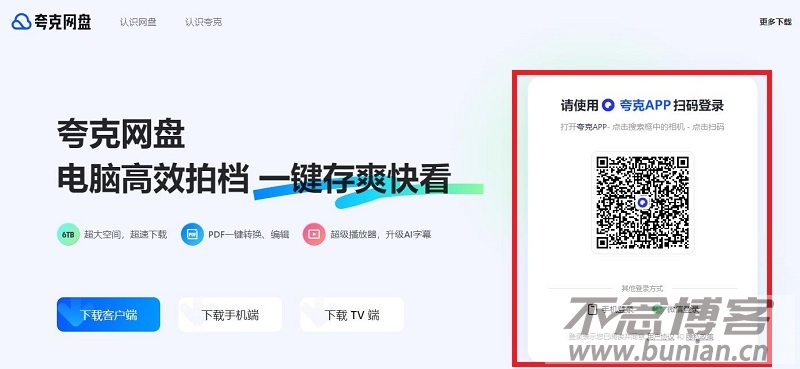今天给大家介绍一个Python备忘单,可以作为学习Python编程的快速参考指南。
无论你是学习基础知识的初学者,亦或是稍有经验的开发人员。
使用这个备忘单不仅可以简化你的编码任务,还能提高你的Python熟练程度。
接下来,就来一起学习下吧~
![45个Python实用小技巧 图片[1]-45个Python实用小技巧-不念博客](https://www.bunian.cn/wp-content/uploads/2023/12/image-165.png)
1、数据类型
int_num = 42
float_num = 3.14
string_var = "Hello, Python!"
bool_var = True2、变量和赋值
x = 10
y = "Python"3、列表和元组
my_list = [1, 2, 3, "Python"]
my_tuple = (1, 2, 3, "Tuple")4、字典
my_dict = {'name': 'John', 'age': 25, 'city': 'Pythonville'}5、条件语句
if x > 0:
print("Positive")
elif x == 0:
print("Zero")
else:
print("Negative")
for item in my_list:
print(item)
while condition:
# code6、函数
def greet(name="User"):
return f"Hello, {name}!"
result = greet("John")7、类和对象
class Dog:
def __init__(self, name):
self.name = name
def bark(self):
print("Woof!")
my_dog = Dog("Buddy")
my_dog.bark()8、文件处理
with open("file.txt", "r") as file:
content = file.read()
with open("new_file.txt", "w") as new_file:
new_file.write("Hello, Python!")9、异常处理
try:
result = 10 / 0
except ZeroDivisionError:
print("Cannot divide by zero!")
finally:
print("Execution completed.")10、库和模块
import math
from datetime import datetime
result = math.sqrt(25)
current_time = datetime.now()11、列表推导式
squares = [x**2 for x in range(5)]12、匿名函数
add = lambda x, y: x + y
result = add(2, 3)13、虚拟环境
# 创建一个虚拟环境
python -m venv myenv
# 激活虚拟环境
source myenv/bin/activate # On Unix or MacOS
myenv\Scripts\activate # On Windows
# 退出虚拟环境
deactivate14、安装包管理
# 安装Python库
pip install package_name
# 已安装的Python库列表
pip list
# 创建一个requirements.txt文件
pip freeze > requirements.txt
# 根据requirements.txt安装依赖的Python库
pip install -r requirements.txt15、JSON数据处理
import json
# 将Python对象转换成JSON
json_data = json.dumps({"name": "John", "age": 25})
# 将JSON转换成Python对象
python_obj = json.loads(json_data)16、正则表达式
import re
pattern = r'\d+' # 匹配1个或多个数字
result = re.findall(pattern, "There are 42 apples and 123 oranges.")17、日期操作
from datetime import datetime, timedelta
current_date = datetime.now()
future_date = current_date + timedelta(days=7)18、列表操作
numbers = [1, 2, 3, 4, 5]
# 过滤
evens = list(filter(lambda x: x % 2 == 0, numbers))
# 映射
squared = list(map(lambda x: x**2, numbers))
# 减少
from functools import reduce
product = reduce(lambda x, y: x * y, numbers)19、字典操作
my_dict = {'a': 1, 'b': 2, 'c': 3}
# 获取值
value = my_dict.get('d', 0)
# 字典推导式
squared_dict = {key: value**2 for key, value in my_dict.items()}20、线程并发
import threading
def print_numbers():
for i in range(5):
print(i)
thread = threading.Thread(target=print_numbers)
thread.start()21、使用Asyncio实现并发
import asyncio
async def print_numbers():
for i in range(5):
print(i)
await asyncio.sleep(1)
asyncio.run(print_numbers())22、使用Beautiful Soup实现网页爬虫
from bs4 import BeautifulSoup
import requests
url = "https://example.com"
response = requests.get(url)
soup = BeautifulSoup(response.text, 'html.parser')
title = soup.title.text23、使用Flask实现RESTful API
from flask import Flask, jsonify, request
app = Flask(__name__)
@app.route('/api/data', methods=['GET'])
def get_data():
data = {'key': 'value'}
return jsonify(data)
if __name__ == '__main__':
app.run(debug=True)24、使用unittest进行单元测试
import unittest
def add(x, y):
return x + y
class TestAddition(unittest.TestCase):
def test_add_positive_numbers(self):
self.assertEqual(add(2, 3), 5)
if __name__ == '__main__':
unittest.main()25、与SQLite的数据库交互
import sqlite3
conn = sqlite3.connect('example.db')
cursor = conn.cursor()
# 只需SQL查询
cursor.execute('CREATE TABLE IF NOT EXISTS users (id INTEGER PRIMARY KEY, name TEXT)')
# 提交
conn.commit()
# 关闭链接
conn.close()26、文件写入和读取
# 保存文件
with open('example.txt', 'w') as file:
file.write('Hello, Python!')
# 读取文件
with open('example.txt', 'r') as file:
content = file.read()27、异常操作
try:
result = 10 / 0
except ZeroDivisionError as e:
print(f"Error: {e}")
except Exception as e:
print(f"Unexpected Error: {e}")
else:
print("No errors occurred.")
finally:
print("This block always executes.")28、JSON数据处理
import json
# 将Python对象转换成JSON
json_data = json.dumps({"name": "John", "age": 25})
# 将JSON转换成Python对象
python_obj = json.loads(json_data)29、Python修饰符
def decorator(func):
def wrapper():
print("Before function execution")
func()
print("After function execution")
return wrapper
@decorator
def my_function():
print("Inside the function")
my_function()30、使用枚举
from enum import Enum
class Color(Enum):
RED = 1
GREEN = 2
BLUE = 3
print(Color.RED)31、集合操作
set1 = {1, 2, 3}
set2 = {3, 4, 5}
# 合并
union_set = set1 | set2
# 交集
intersection_set = set1 & set2
# 差值
difference_set = set1 - set232、列表推导式
numbers = [1, 2, 3, 4, 5]
# 偶数的平方
squares = [x**2 for x in numbers if x % 2 == 0]33、匿名函数
add = lambda x, y: x + y
result = add(3, 5)34、线程与Concurrent.futures
from concurrent.futures import ThreadPoolExecutor
def square(x):
return x**2
with ThreadPoolExecutor() as executor:
results = executor.map(square, [1, 2, 3, 4, 5])35、使用gettext国际化
import gettext
# 设置语言
lang = 'en_US'
_ = gettext.translation('messages', localedir='locale', languages=[lang]).gettext
print(_("Hello, World!"))36、虚拟环境
# 创建一个虚拟环境
python -m venv myenv
# 激活虚拟环境
source myenv/bin/activate # On Unix or MacOS
myenv\Scripts\activate # On Windows
# 退出虚拟环境
deactivate37、日期处理
from datetime import datetime, timedelta
now = datetime.now()
# 日期格式化
formatted_date = now.strftime('%Y-%m-%d %H:%M:%S')
# 添加天数
future_date = now + timedelta(days=7)38、使用字典
my_dict = {'name': 'John', 'age': 30}
# 获取值
age = my_dict.get('age', 25)
# 遍历键和键值
for key, value in my_dict.items():
print(f"{key}: {value}")39、正则表达式
import re
text = "Hello, 123 World!"
# 匹配数字
numbers = re.findall(r'\d+', text)40、迭代器
def square_numbers(n):
for i in range(n):
yield i**2
squares = square_numbers(5)41、与SQLite的数据库交互
import sqlite3
# 链接SQLite数据库
conn = sqlite3.connect('mydatabase.db')
cursor = conn.cursor()
# 执行SQL查询语句
cursor.execute('SELECT * FROM mytable')42、ZIP文件操作处理
import zipfile
with zipfile.ZipFile('archive.zip', 'w') as myzip:
myzip.write('file.txt')
with zipfile.ZipFile('archive.zip', 'r') as myzip:
myzip.extractall('extracted')43、网页抓取请求和BeautifulSoup
import requests
from bs4 import BeautifulSoup
url = 'https://example.com'
response = requests.get(url)
soup = BeautifulSoup(response.text, 'html.parser')
# 获取网页数据
title = soup.title.text44、使用smtplib发送邮件
import smtplib
from email.mime.text import MIMEText
# 启动邮件服务
server = smtplib.SMTP('smtp.gmail.com', 587)
server.starttls()
# 登录电子邮件账户
server.login('your_email@gmail.com', 'your_password')
# 发送邮件
msg = MIMEText('Hello, Python!')
msg['Subject'] = 'Python Email'
server.sendmail('your_email@gmail.com', 'recipient@example.com', msg.as_string())45、使用JSON文件
import json
data = {'name': 'John', 'age': 30}
# 写入JSON文件
with open('data.json', 'w') as json_file:
json.dump(data, json_file)
# 读取JSON文件
with open('data.json', 'r') as json_file:
loaded_data = json.load(json_file)© 版权声明
本站文章由不念博客原创,未经允许严禁转载!
THE END









